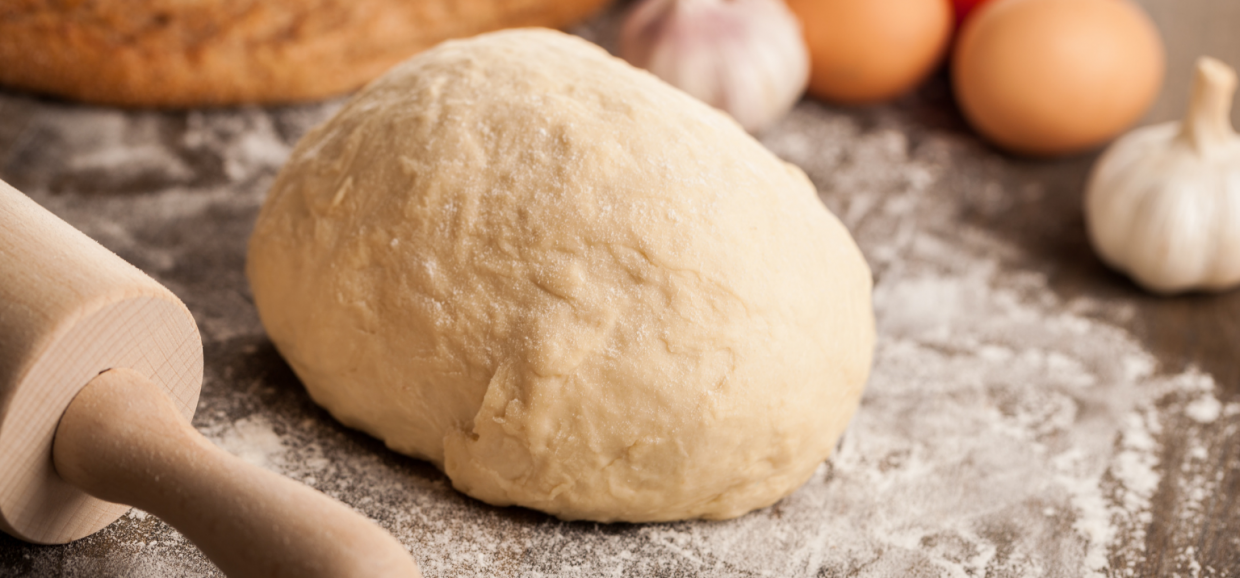I’m sure we have all tried to make some type of dough and it has fully just flopped! I know that feeling as it has happened to me many times but don’t worry! Its not the end of the world as I have a few tips and tricks for you to easily resolve these issues.
Why is my dough not rising?
Here are the main reasons why your dough may not be rising:
One of the reasons why your dough may not be rising is because the water you used whilst proofing the yeast may have been too hot. Using water which is too hot can instantly kill the yeast. The water is recommended to be between 105F and 115F which is the perfect temperature for proofing yeast. You must ensure it is not too cold as your yeast will not activate and this can also cause your yeast to die. Yeast loves warmer temperatures therefore if your kitchen gets too cold it can kill the yeast and will not help your dough. Another reason is that your yeast may have been lurking around in your kitchen for too long. Checking the date on your yeast before using it is ESSENTIAL! We have been using instant dry yeast for years and just have it stored in the freezer and have not found any problems so far.
Ruky Tip
To keep your yeast nice and fresh, keep it in an airtight container or jar and store it in the freezer.
The dough is too sticky, whilst I am kneading?
This may depend on the type of dough you are making, but if you find that your dough is too sticky and is sticking to the work surface and your hands too much, then a quick and simple solution is to tip the dough out onto a well-floured surface and also sprinkle some flour on top of the dough, then continuously knead it through for around 5- 6 minutes. Eventually, the dough will begin to become less sticky the more you knead through it. Knead only until the dough becomes smooth and elastic.
The dough has become too hard?
You may find that although you have continuously followed a recipe ensuring everything is perfect, you may have just added too much of something causing the dough to become too hard. In order to fix this, all you have to do is add a little warm milk and a splash of oil then continue kneading. Its that simple!!
Why did my dough cave in after I baked it?
This is a problem which has occurred many times in our baking bread recipes too. But after many trials and errors we have finally found a solution to this. Either your dough has been rising for too long or your oven temperature was too low. When you leave your dough to double in size, it has reached its maximum capacity therefore if you leave it a little longer to rise before putting it into the oven, it is most likely that it will begin to cave in the middle as it cannot rise anymore. If your oven temperature is too low, the dough will begin to sink in the middle.
Ruky Tip
Ensure your dough is only risen to double in size. You can check if dough has doubled in size by flouring your finger and place them on the dough. If the indentation stays, then your dough is ready and if the dough springs back up, then your dough has not fully risen. To check the exact temperature of your oven, you can use an oven thermometer.
Why is my dough too dense. Its not soft and spongy?
Whilst people are beginning to learn how to make bread, this is often one of the most common questions and may also be one of the most difficult ones to answer as there are multiple reasons why your bread might feel as dense as a brick!
The first reason may be that the type of flour you used may not have a high protein content. Some flour types have too low of protein content which can cause your dough to become dense. The higher protein in your flour helps to keep your dough moist. It is important you check the protein content of the flour before using it in bread recipes. Another reason may be that you may have added too much salt into your dough. By adding too much salt into your dough you may find that the dough will not rise at all and once baked you will find that it has a denser crumb. Over-proofing the dough can also cause it to become too dense once baked in the oven.



